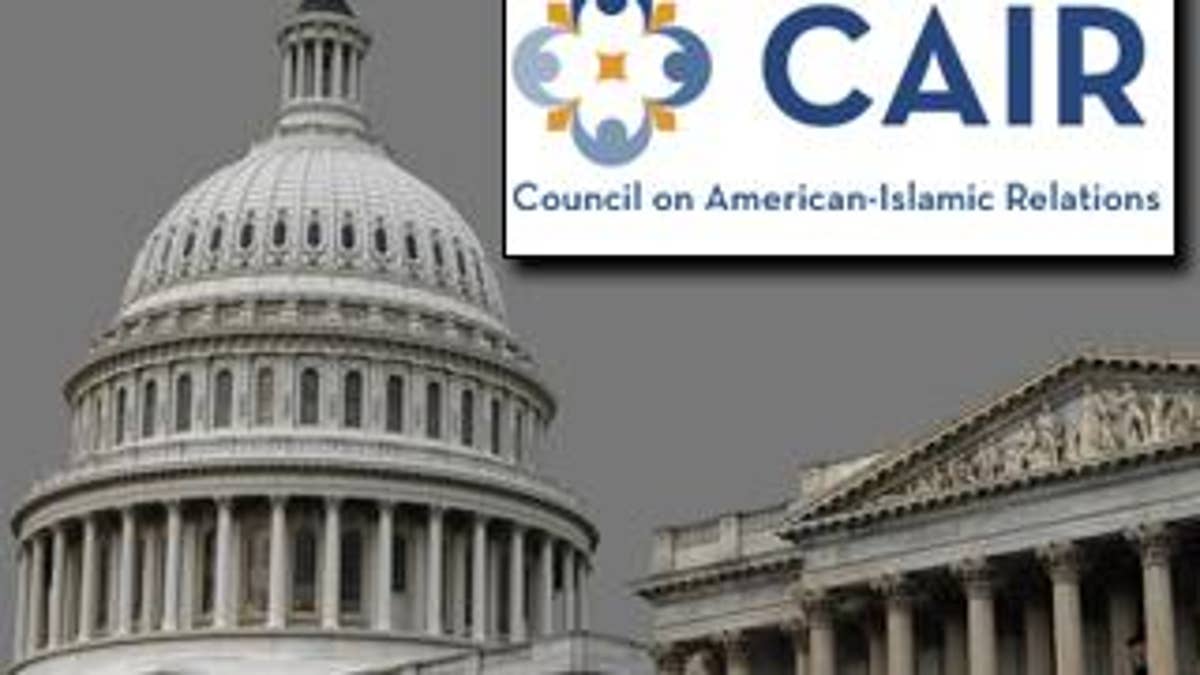
A U.S.-based pro-Muslim group that enjoys close ties with the Obama administration has landed on one Arab nation's list of terrorist organizations.
The Council on American-Islamic Relations (CAIR) was one of 82 groups around the world designated terrorist organizations by the United Arab Emirates, placing it in the company of Al Qaeda, Islamic State and others. While CAIR has previously been linked to Hamas, it has held hundreds of meetings with White House officials on a wide range of community issues and has sought to present itself as a mainstream Muslim organization.
"We call on the United Arab Emirates cabinet to review this list and remove organizations such as CAIR, the Muslim American Society (MAS) and other civil society organizations that peacefully promote civil and democratic rights and that oppose terrorism whenever it occurs, wherever it occurs and whoever carries it out," CAIR wrote in a statement on its Facebook page, which also called its inclusion on the UAE list a "bizarre move."
[pullquote]
Despite its good standing in Washington, CAIR has had its share of controversy. In 2007, the organization was named along with 300 others as an unindicted co-conspirator in a case regarding funding to extremist group Hamas. Its critics have long accused the group of having ties to groups like the Muslim Brotherhood and Hamas.
Some terrorism experts applauded the UAE's designation, saying CAIR is an arm of the Muslim Brotherhood.
“The United Arab Emirates could have banned the Muslim Brotherhood and left it at that,” Ryan Mauro, a national security analyst for the Clarion Project, told FoxNews.com. “Instead, they went the extra mile to call out major Brotherhood affiliates in Europe and the U.S. The point that the UAE is making is that the Brotherhood operates in the West and it is worried about these affiliates' influence on Western policy.
“Federal prosecutors have explicitly named CAIR and MAS as Muslim Brotherhood entities, yet the UAE is expressing more public concern about this than the U.S. does," Mauro added. "Whereas they appear in our media and meet with our officials, the UAE views them as extremists unworthy of being treated as representatives of Muslims.”
CAIR spokesman Ibrahim Hooper said his organization, as well as other Muslims who are against terrorism, are often unfairly portrayed
“Obama provided examples of religious leaders engaged in the ideological fight against extremism, quoting a Muslim sheikh who said, ‘We must declare war on war, so the outcome will be peace upon peace,’” Hooper said. “That sheikh is Abdullah bin Bayyah, a 79-year-old cleric who, even though lauded on the world stage for his recent efforts at peacemaking, is dogged by controversy over connections to the Muslim Brotherhood.”
The UAE’s list was likely to ratchet up the pressure on the Muslim Brotherhood by lumping it together with extremists such as the Islamic State and Al Nusra, Al Qaeda's affiliate in Syria.
The move follows a decision by Saudi Arabia in March to designate the Brotherhood a terrorist group along with Al Qaeda and others. The Emirates voiced support for the decision at the time, and accused Islamist groups of trying to topple its Western-backed ruling system.
Saudi Arabia and the UAE have taken a firm stance against the Muslim Brotherhood since its ascendance in Egypt in the wake of the Arab Spring, and the oil-rich Gulf neighbors are strong supporters of Egyptian President Abdel-Fattah el-Sissi. He was elected earlier this year after leading the military overthrow of Islamist President Mohammed Morsi, a member of the Muslim Brotherhood.
Officials at the U.S. State Department did not immediately return comment when asked about the UAE’s designation list.
The Associated Press contributed to this story.




















